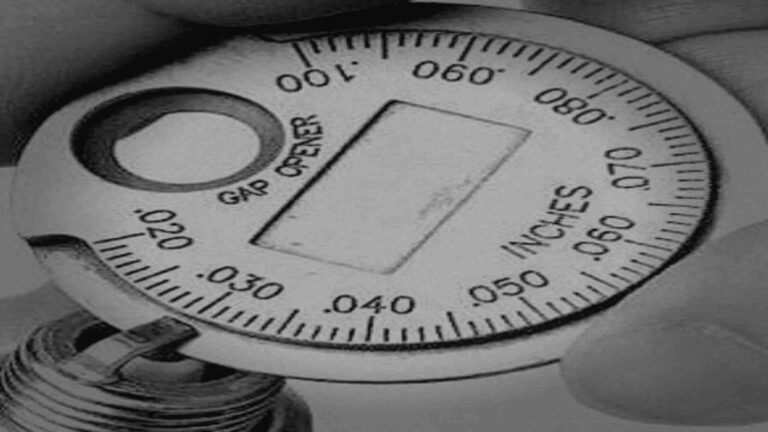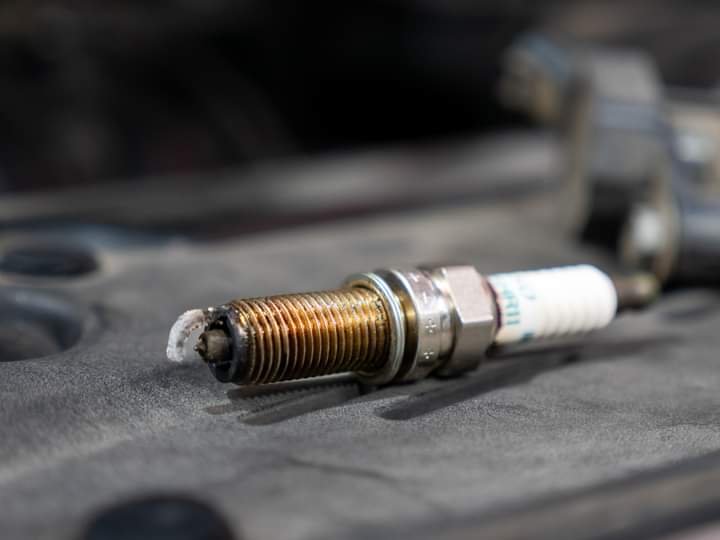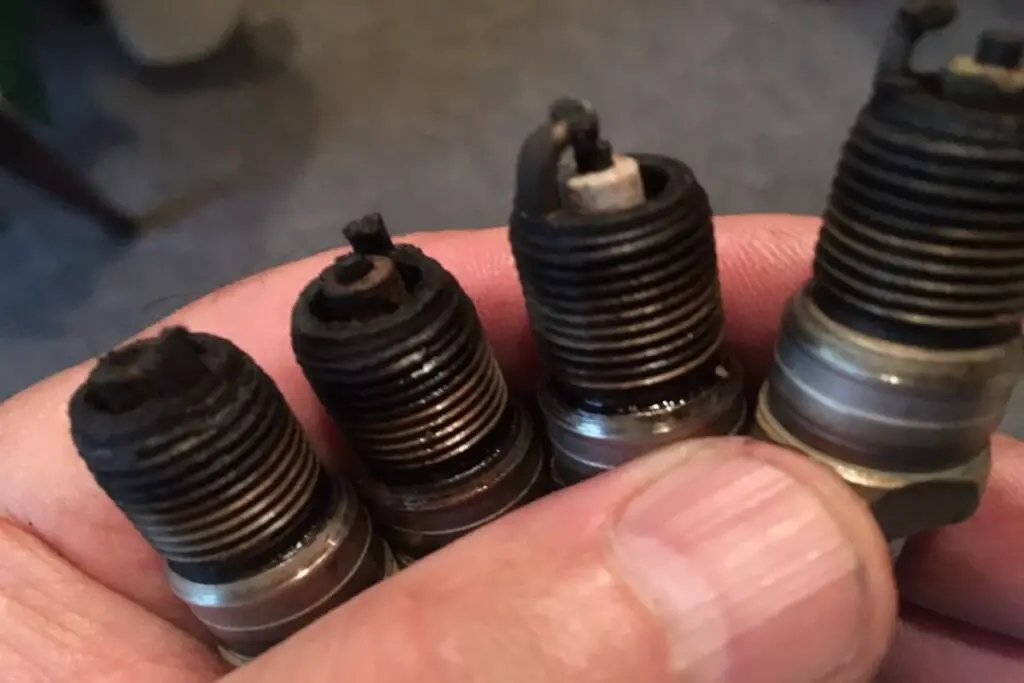As an Amazon Associate, we earn from qualifying purchases. This does not affect the price you pay or the quality of the products you buy. For more information, please read the full affiliate disclosure here.
Have you ever bought a new spark plug, only to find it turning black after a short period of use?
We understand your frustration! It’s a common issue that affects many generator engine owners.
The blackening of spark plugs is a sign of incomplete combustion, which can lead to a range of issues such as reduced power, increased fuel consumption, and at times can cause the engine not to start.
Hence, in this article, we’ll explore the various reasons why new spark plugs turn black and what you can do to fix them.
Why New Spark Plugs Turn Black And How to Fix It
There are various reasons why new spark plugs turn black, which include:
1. Too Much Fuel and Not Enough Air
One of the most common reasons why spark plugs turn black is due to a rich fuel mixture. And this occurs when the engine is receiving too much fuel and not enough air.
The excess fuel creates a sooty deposit on the spark plug, causing it to turn black. A rich fuel mixture can be caused by a faulty carburetor, a clogged air filter, or a malfunctioning fuel injector.
If you suspect that a rich fuel mixture is the cause of your black spark plug, it’s best to have a mechanic diagnose and fix the problem by checking your carburetor, air filter, and even fuel injector.
2. Oil Contamination/Leaks
Another cause of black spark plugs is oil contamination. This happens when oil leaks into the combustion chamber and mixes with the fuel.
The resulting mixture of fuel and oil can coat the spark plug with a black, oily deposit that can impede its performance.
Oil contamination can be caused by worn piston rings, a damaged cylinder wall, or a failed valve seal.
To suspect that oil contamination is the cause of your black spark plug, you will find that your generator is blowing out white smoke.
So, to fix it, one must have the engine inspected and checked by a qualified mechanic.
Also Read:- How to Fix Low Oil Pressure in Generator
3. Engine Overheating
Overheating is another factor that can cause spark plugs to turn black. When an engine runs too hot, it can cause the fuel to burn incompletely, leading to the formation of sooty deposits on the spark plug.
Overheating can be caused by a variety of factors, including a faulty cooling system, a malfunctioning thermostat, or a clogged radiator.
If your engine is running hot, it’s important to address the issue promptly to prevent damage to the engine and other components.
4. Incorrect Spark Plug Gap
An incorrectly gapped spark plug can also cause it to turn black. The gap between the center and ground electrodes on the spark plug is critical to its performance.
If the gap is too wide, the spark may not be strong enough to ignite the fuel mixture, resulting in incomplete combustion and the formation of sooty deposits.
On the other hand, if the gap is too narrow, the spark may be too weak to ignite the fuel mixture, causing similar issues.
Therefore, it’s important to use the correct spark plug gap for your engine and to check the gap regularly to ensure that it remains within the recommended range.
Also Read:- Generator Spark Plug Gap: What It Is and Why It Matters
5. Poor Quality Fuel
Lastly, using poor-quality fuel can also contribute to the formation of sooty deposits on spark plugs.
Low-quality fuel can contain contaminants that can interfere with combustion, leading to incomplete combustion and the formation of black deposits on the spark plug.
You must use high-quality fuel that meets the manufacturer’s recommendations to ensure optimal engine performance.
Also Read:- How to Fix Black Spark Plugs
Conclusion
A blackened spark plug is a sign of incomplete combustion, which can have serious consequences for the performance and longevity of your engine.
If you notice that your new spark plugs are turning black, it’s important to identify and address the underlying issue promptly to prevent further damage.
The most common causes of black spark plugs include a rich fuel mixture, oil contamination, overheating, and an incorrect spark plug for poor-quality quality fuel.
By addressing these issues on time and taking steps to prevent them from occurring in the future, you can help ensure that your engine runs smoothly and reliably for years to come.






